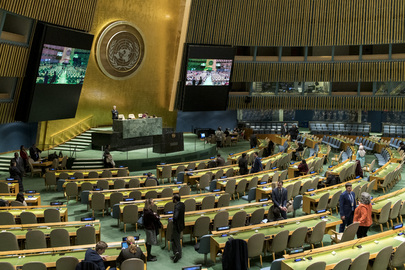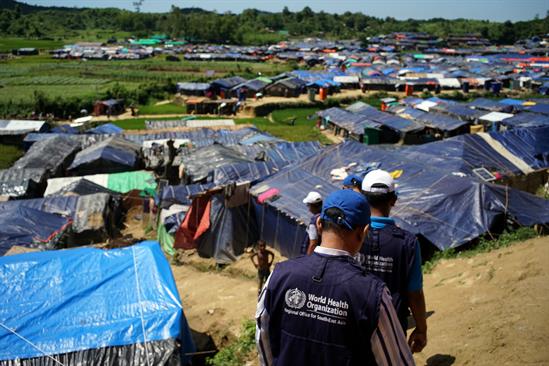UN General Assembly holds elections under coronavirus conditions
New York, June 17-18 – Constrained by the severe impacts of coronavirus, the UN General Assembly elected its new president and five non-permanent members of the UN Security Council by holding a non-plenary meeting in which voters stepped forward to cast ballots wearing facial masks and maintaining strict social distancing.
The 193-member assembly elected Volkan Bozkir of Turkey as its president for the September 2020-September 2021 period, which marks the 75th anniversary of the founding of the United Nations.
The assembly elected India, Ireland, Mexico, Norway and Kennya as non-permanent members for two-year terms of the 15-nation UN Security Council. The newly elected countries will replace the five non-permanent members that will exit the council as of December 31 this year. The council is the most important political body in the UN system as it holds decision making power over issues of peace and security in the world.
The UN Security Council membership starting on January 1, 2021 are: permanent members: the United States, Russia, China, France and the United Kingdom. The 10 non-permanent members are: India, Ireland, Kenya, Mexico, Niger, Norway, St. Vincent and Grenadines, Estonia and Vietnam.
Tijjani Muhammad-Bande, the current assembly president, said the procedure for the elections was applied for the first time in UN history in order to meet health-related requirements under the Covid-19 pandemic. In normal times before the pandemic the assembly met in a plenary session to carry out its programs.
The pandemic has compelled the UN to scale down or postpone scheduled meetings in 2020. For the upcoming annual UN General Assembly session in September, it has been decided that heads of states and governments are not required to show up and instead send only two representatives to meetings. “Since the onset of the COVID-19 pandemic, we have all had to work under extraordinary conditions to overcome the myriad of challenges facing us. Indeed, the elections represented our common commitment to ensuring the uninterrupted continuation of the important work of the United Nations, in accordance with the values and principles of the United Nations Charter,” Muhammad-Bande said.
UN General Assembly holds elections under coronavirus conditions Read More »




